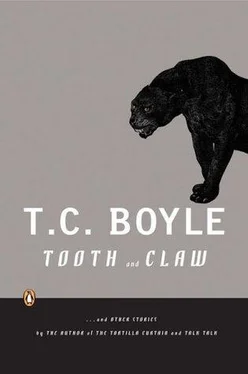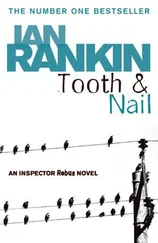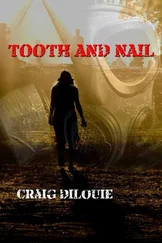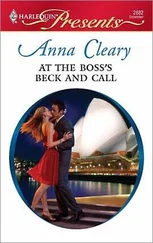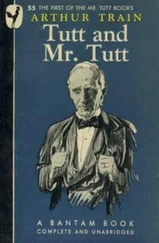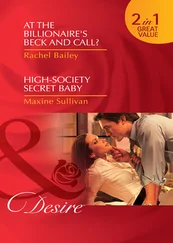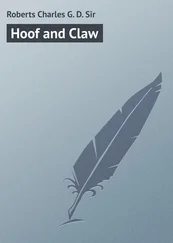He did. Because he was something of a nature buff himself, hiking up the canyons on weekends, poking under rocks and in the willows along the streambeds, trying to learn the lore, and his own bookshelves featured many of the same titles he’d found on hers. Which was one of the reasons they were going to Big Timber for the weekend — so he could show her the trails he’d discovered the past summer, take her on the Trail of a Hundred Giants and then down the Freeman Creek Trail to the Freeman Grove. She was from Boston and she’d never seen the redwoods and sequoias except in photographs. When she’d told him that, over a plate of mussels marinara at a semi-hip, over-priced place on Wilshire with red banquette seats and votive candles on the tables, he began to rhapsodize Big Timber till he’d made it out to be the earthly paradise itself. Which it was, for all he knew. He’d only been there twice, both times with Jared, on their mountain bikes, but it was as wild and beautiful as it must have been in Muir’s time — sure it was — and he’d convinced her to have her sister babysit for the weekend so they could hike the trails and cross-country ski if there was enough snow, and then sit at the bar at the lodge till it was time to go to bed.
And that was the other reason for the trip, the unspoken promise percolating beneath the simple monosyllable of her assent — going to bed. On their first date she’d told him she was feeling fragile still — her word, not his — and wanted to take things slowly. All right. He respected that. But three weeks had gone by and when she’d agreed to come with him — for two days and two nights — he felt something pull loose inside of him.
“Right,” he said, “and then they all return to the Sargasso Sea to mate.”
“Amazing, isn’t it?”
“All those eels,” he said. “Eels from Ohio, Pennsylvania, Texas”—he gave her a look—“Ontario even.”
That was when the wheels got away from him and the car spun across the road to glance off a white-capped boulder and into a glistening white ditch that undulated gracefully away from the hidden surface of the road, which was where he really and truly wanted to be.
THAT THEY WERE STUCK was a given. The passenger’s side wheels were in the ditch, canting the car at an unfortunate angle, and beneath the furiously accumulating snow there was a glaze of ice that gave no purchase. He cursed under his breath—“Shit, shit, shit”—and slammed the wheel with his fist, and she said, “Are we stuck?” For a long moment he didn’t respond, the wipers stupidly beating, the snow glossy in the headlights and driving down like a hard white rain. “Are you all right?” he said finally. “Because I–I mean, it just got away from me there. The road — it’s like a skating rink or something.” Her face was ghost-lit. He couldn’t see her eyes. “Yeah,” she said softly, “I’m fine.”
When he cracked the door to get out and have a look, the snow stung his eyes and drove the breath from his lips. He caught a quick glimpse of her, huddled there in the passenger’s seat — and there was the smell of her perfume too, of the heat of her body and the sleepy warmth of the car’s interior — and then he slammed the door and walked round the car to assess the damage. The front fender on the passenger’s side had been staved in where it had hit the boulder, but it didn’t seem to be interfering with the wheel at all — and that was the good news. For the rest of it, the rear tires had dug themselves a pair of craters in the ice beneath the snow and the axle was resting on a scraped-bald patch of dirt just beneath the tailpipe. And the snow. The snow was coming down and the road was certain to be closed — till spring maybe — and he wasn’t sure how many miles yet it was to the lodge. Five? Ten? Twenty? He couldn’t begin to guess, and as he looked up into the thin streaming avenue of illumination the car’s headlights afforded him, he realized he didn’t recognize a thing. There were just trees. Trees and more trees.
Then the car door slammed and she was standing there beside him, the hood of her parka drawn tight over the oval of her face. “You know, I grew up in snow, so this is nothing to me.” She was grinning, actually grinning, the glow of the taillights giving her features a weird pinkish cast. “I’ll tell you what we have to do, we have to jack up this back wheel here and put something under it.”
“Like what?” The engine coughed softly, twice, three times, and then settled into its own rhythm. There was the smell of the exhaust and the sound of the miniature ice pellets in all their trillion permutations hissing off the hood of his jacket, off the trunk of the car, off her hood and the boughs of the trees. He looked round him bleakly — there was nothing, absolutely nothing, to see but for the hummocks of the snow, white fading to gray and then to a drifting pale nullity beyond the range of the headlights.
“I don’t know,” she said, “a log or something. You have a shovel in the trunk?”
He didn’t have a shovel in the trunk — no shovel and no chains. He began to feel less a risk taker and more a fool, callow, rash, without foresight or calculation, the sort of blighted individual whose genetic infirmities get swallowed up in the food chain before he can reproduce and pass them on to vitiate the species. That was the way an evolutionist would see it — that was the way she would see it. “No, uh-uh, no shovel,” he breathed, and then he was slogging round the car to reach in the driver’s door, cut the engine and retrieve the keys — the jack was in the trunk, anyway. Or at least it had been, the last time he’d looked, but who obsessed over the contents of the trunk of their car? It was a place to put groceries, luggage, the big purchase at the mall.
Without the rumble of the engine, the night seemed to close in, the ceaseless hiss of the snow the only sound in the universe. He left the lights on, though the buzzer warned him against it, and then he was back with her, flinging open the trunk of the car, the interior of which immediately began to whiten with the descending snow. There were their bags — his black, hers pink — and there was the jack laid in against the inner panel where he’d flung it after changing a flat last summer. Or was it summer before last?
“Okay, great,” she said, the pale puff of her breath clinging at her lips, “why don’t you jack it up and I’ll look for something to — pine boughs, we could use pine boughs. Do you have a knife with you? A hatchet? Anything to cut with?”
He was standing there, two feet from her, staring into the whitening trunk. There were two plastic quarts of motor oil in the back, a grease-stained T-shirt, half a dozen CDs he was afraid the valet at the Italian restaurant might have wanted to appropriate for himself, but no knives, no tools of any kind, other than the jack handle. “No, I don’t think so.”
She gave him a look then — the dark slits of her glasses, the pursed lips — but all she said was, “We could use the carpet. I mean, look”—and she was reaching in, experimentally lifting the fitted square of it from the mottled steel beneath.
The car was two years old and he was making monthly payments on it. It was the first car he’d ever bought new in his life and he’d picked it out over Christine’s objections. He liked the sportiness of it, the power — he could blow by most cars on the freeway without really pushing it — and the color, a magnetic red that stood out a hundred yards away. He didn’t want to tear out the carpeting — that was not an option, because they’d get out of this and laugh about it over drinks at the lodge, and there was no sense in getting panicky, no sense in destroying things unnecessarily — but she already had hold of it with one hand and was shoving the bags back away from it with the other, and he had no choice but to pitch in and help.
Читать дальше
